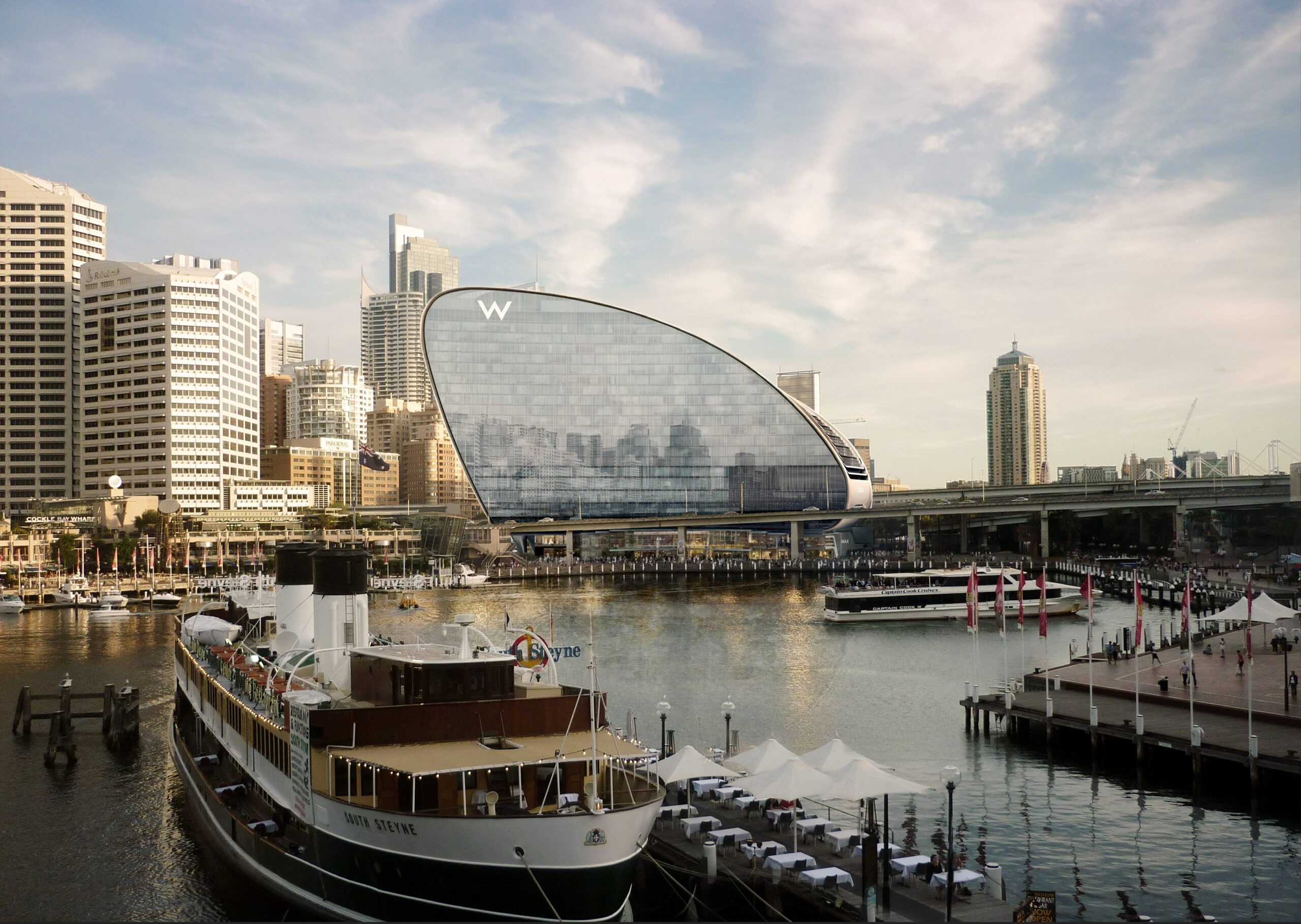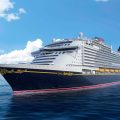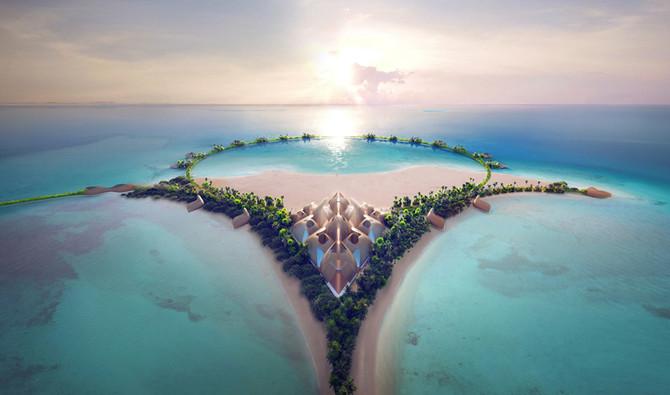Saudi Arabia’s sustainable project Red Sea Global is set to welcome first guests this year. Loredana Pettinati, Senior Director – Travel Trade, Red Sea Global, talks to Disha Shah Ghosh about their sustainability goals, and capping the number of tourists to protect the environment.
Q. What is your focus at SATTE? Please share your expectations from your debut participation at this annual event.
We have a huge year ahead as Red Sea Global; we will be debuting our first hotels in 2023 at The Red Sea destination, Six Senses Southern Dunes, The Red Sea, St. Regis Red Sea Resort and Nujuma, A Ritz-Carlton Reserve. Our international airport will also be welcoming first guests, beginning with domestic flights, a game changing entity when it comes to sustainability. In line with the company’s sustainability goals, the entire infrastructure of The Red Sea destination, including its transport network, is powered by 100% renewable solar energy.
For Red Sea Global, our goal is to go beyond just educating peers on our development and what is to open in the coming years, we want to inspire and engage the stakeholders of our industry during SATTE. Travel is going through a shift, there is a clear focus towards wellness and sustainability and digital advances with technology, and these are areas in which Red Sea Global is playing a pioneering role – so we are looking forward to our debut and sharing more during the show on these topics in particular.
Q. Enlighten us about the progress of the development of The Red Sea. When are the first guests expected? Your plans for tourist numbers in the first year?
The Red Sea is on track to welcome first guests this year with leading hotel brands due to open their doors in 2023:
Six Senses Southern Dunes, the 76 guest rooms will be made up of open-plan bedrooms with outdoor terraces and villas ranging from one to four bedrooms boasting incredible views. The centre of the resort will be the Oasis, which is inspired by a desert flower, blurring the lines between the interior architecture and outdoor nature. In the Oasis there will be restaurants, bars and boutique meeting spaces. The state of the art spa will feature deep cold pools to contrast the warm climate, a Holistic Anti-Aging Centre, sensory suite outdoor treatment and both male and female grooming centres.
Marriott International is extending their growth in the Middle East with St. Regis Red Sea Resort, a destination of ultimate luxury, set on a private island so guests can enjoy the beautiful surroundings with privacy and serenity. The resort will feature two signature restaurants, 90 villas, an outdoor pool, spa, fitness centre and a Children’s Club. The exclusive St. Regis Red Sea will offer Marriott’s visionary spirit, bespoke service and avant-garde style but from a new and very exciting location.
The Red Sea’s Ummahat Island will soon be home to one of the destinations most exclusive resorts, Nujuma, A Ritz-Carlton Reserve. The resort will feature 63 one-to-four-bedroom water and beach villas surrounded by flourishing coral reefs in crystal-clear waters. Nujuma will offer a highly personalised leisure experience, offering a heartfelt and intuitive service to all guests for unrivalled luxury. The resort will boast a state-of-the-art diving centre with a diverse range of undersea activities available to explore the world of one of the most untouched and protected archipelagoes in the world including deep-sea heritage diving excursions.
Environmental practice is the backbone of every decision Red Sea Global makes, and as such visitor numbers will be capped to ensure our targeted 30% net conservation benefit to the destination can be met long term. Once the hub island opens in 2024, we will be working to visitor numbers of around 300,000 per year.
Our sustainability commitments are also evident in other assets close to completion at the destination, which include solar farms that will enable the entire destination to run on clean renewable energy.
Q. How do you plan to showcase your destination in the Indian market since Saudi Arabia itself is a new entrant here?
The Indian market is an affluent and valuable audience for Red Sea Global, with the benefit of being geographically close to both of our destinations. Visionary travellers who want to explore a previously unknown region will be able to experience luxury, adventure, sports and relaxation delivered at the highest sustainable standards. Working with our partners and in-market experts, we’ll be looking to showcase our destinations to captivate this audience and entice their curiosity.
Q. Tell us about your other sustainable luxury tourism project, Amaala.
Amaala is an ultra-luxury destination due to welcome guests in 2024. Set in the Prince Mohammad bin Salman Natural Reserve along Saudi Arabia’s northwestern coast, Amaala will be the first global integrated family wellness destination, set to curate transformative personal journeys inspired by arts, wellness, and the purity of the Red Sea. State of the art facilities and an attractive year-long events calendar will ensure Amaala is a distinctive wellness destination worldwide. Featuring diverse natural ecosystems and a unique landscape, Amaala will initially feature eight resorts, 200 residential units, a marina and yacht club within 4,155 sq km.
Q. How will these projects help conserve the natural habitat of Saudi Arabia?
Both destinations incorporate pristine ecosystems that are home to a variety of species, many of which are unique to Saudi Arabia and often regarded as endangered. The lagoon of The Red Sea destination has 314 different species of coral and 280 species of fish alone. Red Sea Global is following a regenerative approach to tourism development, working with experts to ensure we are science led to implement the most advanced environmental, scientific practices at every stage of development and thereafter.
For example, less than 1% of the entire Red Sea destination will be developed. Of more than 90 islands, only 22 will be developed, leaving 75% untouched and designating 9 as special conservation zones. Red Sea Global aims to have a positive impact on the environment, society and the economy – creating upwards of 70,000 new jobs for Saudis by 2030 and setting out to achieve a 30% net conservation benefit by 2040. This will be achieved by enhancing biologically diverse habitats including mangroves, seagrass, corals and land vegetation to help biodiversity to flourish, and the work has started in this regard. Red Sea Global built the largest nursery in the region which is already home to more than two million plants, trees and mangroves.
In 2022, we also unveiled the design of The Red Sea Marine Life Institute located in Triple Bay, Amaala, which will function as a scientific research centre, central to our broader environmental ambitions for the Red Sea, as well as a tourist destination.
Q. The awareness about SDGs is still not very profound. How do you plan to highlight these through your two projects?
At Red Sea Global, awareness of and alignment with the UN SDG’s have been central to our planning process and ongoing development of both destinations. We play particularly close attention to the SDGs pertaining to life above and below water as previously mentioned, but additionally, the role tourism can play from a socio-economic standpoint to uplift the lives of those living in close proximity to our destinations.
Working with our local communities to enhance opportunity and create long term economic sustainability is a key priority and over the last five years, the company has successfully launched programmes geared towards the upskilling and training of young Saudis. Such efforts also support the creation of a pool of talent, which will power the delivery of the Group’s portfolio of projects and the wider growth of the tourism sector in the Kingdom.
Initiatives include the Elite Graduate Program, which has brought in more than 120 fresh graduates to the organisation for on-the-job training over the last four years, with the next batch of graduates set to join in early 2023. An additional 1,500 vocational training places have also been provided and students who successfully complete the program will be employed by RSG or one of its partners.
A partnership with the University of Prince Mugrin provided 220 scholarships so far with 50 more set to be provided in 2023. The undergraduate studies, leading to a Bachelor of Science Degree in International Hospitality Management, is accredited by the prestigious Ecole hôtelière de Lausanne (EHL).
Our groundbreaking approach toward a more responsible way of developing and the lessons we learn along the way, is something we are always eager to share with the global development sector to ensure that prioritizing the SDGs, our precious planet and the people living on it, is an ethos we all share.
Q. What kind of investment is being made to bring the ambitious plans to reality?
Activity for the first phase of development on both Amaala and The Red Sea is well underway, and is fully funded by the Public Investment Fund. The Red Sea phase one will welcome first guests this year and is on track to be completed in 2024, while Amaala will open to first guests in 2024.
To date, across the two live projects, the company has awarded more than 1300 contracts worth nearly SAR 32 billion ($8.5 bn), with some 70 per cent of the total value awarded to Saudi companies, reflective of the organisation’s ambition to positively impact the local economy. The company has also seen interest from the investment community, most recently announcing a Joint Venture with Al Mutlaq Group for the delivery of the Jumeirah hotel on Shura Island.
Q. Once completely operational, what is your forecast in terms of tourist numbers for both the projects?
With sustainability at the heart of Red Sea Global’s development plans, we are capping visitor numbers to ensure the highest environmental practices are sustained. Once completed, The Red Sea will not exceed more than one million tourists per year, with Amaala capped at 500,000.






